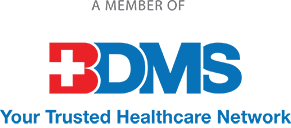High levels of cholesterol have been linked to a wide range of health conditions including heart disease and stroke. However, there are a number of persistent misconceptions about what exactly cholesterol is and what impacts the level of it in your body. The doctors at the Bangkok Hospital Siriroj Internal Medicine Clinic would like to clear a few simple facts up.
1. Not all cholesterol is bad.
“Cholesterol” is one of those words that most people automatically assume is bad, but there are actually different kinds of cholesterol. In fact, some are actually beneficial to your overall cardiovascular health. While it’s true that LDL (low-density lipoprotein), or “bad” cholesterol, can put you at a higher level of risk for a stroke or a heart attack, high levels of HDL (high-density lipoprotein), or “good” cholesterol, can actually reduce your risk of heart disease and stroke. This is because HDL pulls cholesterol towards the liver, which then effectively dispatches it from your system.
2. Eating high cholesterol foods is not the only factor that raises your cholesterol levels.
For years, nutritionists cautioned against eating high-cholesterol foods such as eggs and shrimp. We now know that the level of cholesterol in the body is linked to a number of complex dietary factors. In other words, eating an omelette every now and then probably is not going to put most people at risk. Also, even if you have a healthy body mass index (BMI) and an active lifestyle, it is possible to have a genetic predisposition to high cholesterol. If the condition appears to run in your family, it is worth checking in with your doctor just to be safe.
3. Not all fats are created equal.
Although nutritionists once demonised fat, claiming that a high intake inevitably resulted in high levels of cholesterol and an increased risk of heart disease, we now know better. A diet high in mono- and polyunsaturated fats actually leads to lower rate of cholesterol, while a diet high in partially hydrogenated, or trans, fats and saturated fats can increase it. The former are usually found in butter substitutes such as margarine, shortening, or in industrial processed foods. The latter are a somewhat more complicated story. While most researchers believe that the saturated fats found in animal lard are harmful, there is some evidence that the saturated fat in coconut oil found in a great deal of Thai food may be better.

